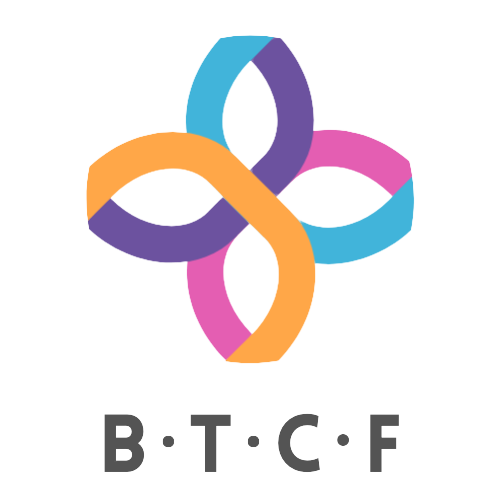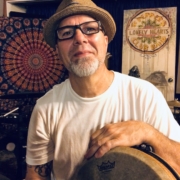AN INTERVIEW WITH MIKE DEMENNO
AN INTERVIEW WITH MIKE DEMENNO
BTCF: When did you begin the REMO Music Center? What is the philosophy and mission behind the center?
MIKE: I began working at the REMO Music Center in February of 2003. The philosophy behind the center was to make “music making” accessible to all walks of life in a welcoming non-stressful environment, especially for those with no musical experience. Much like tennis courts and basketball courts are accessible, we wanted to make music and drumming just as accessible.
BTCF: Drumming supports social and emotional skills; can you share more about this?
MIKE: Drumming and using a specific drum protocol such as Beat The Odds®, can help children understand themselves better, and most importantly understand themselves collectively with other kids. Kids learning together about emotions, social issues, how it is okay to have emotions, and how to process emotions, gives them a sense of real connection.
BTCF: How these skills can be implemented by drumming?
MIKE: I’ve observed that by just allowing people to be creative in a safe, welcoming environment, there is such potential to let go of stress and self-judgment. Drumming together without any implementation often does wonders. Just get out the drums, and without any structure, magic can happen. If you’re able to offer a research-based program that includes drumming, or an experienced drum circle facilitator, then maybe, the real magic happens. There are wonderful programs where people (without any musical background) can learn how to facilitate these drumming programs for SEL (links provided below).
BTCF: When did you start playing an instrument? What instruments do you play?
MIKE: I was about five years old. I knew nothing of rock n’ roll. I didn’t know what a rock n’ roll band was. One summer, my parents took my brother and me to a pool party. And there I saw the holy grail for the first time, a drum set. It’s all I ever wanted from that moment on. However, I did not get my first drum until age eight, and my first drum set until age 12. I took piano lessons from age eight to age eleven. The piano has served me well over the years as a wonderful outlet. I wish I kept up the lessons, however, I wish I had taken lessons more structured on chords and theory, than on scales and classical music.
BTCF: Why is music so important to you and why do you think it inspires others to explore their thoughts, emotions, and feelings?
MIKE: Now at the age of 60, I realize more and more how important it was throughout my life. I am not sure if drumming was a “passion”, a blessing, a curse, or a “calling”, but it has brought lots of good humility. It has taught me a lot about life and about myself. For others, I know music can be their guide throughout life. The music and the lyrics can heal and inspire.
BTCF: BTCF uses all forms of art as healing tools for enriching overall well-being. How do you use your form of art as healing tools?
MIKE: In 1993, I read my first article on how “non-performance based” drumming can do so much good for you and others. This led working at REMO and this led to experiencing for the first time, in a long time, to give myself and others “permission” to just explore, and LET GO of “needing to do it right”. LET GO of expectations and perfection and just allow yourself to be in-the-moment and expressive. The drums are a means to break the ice. A drum circle could be the ultimate ice-breaker.
BTCF: We recently did a virtual drumming circle with you, and it was a lot of fun. What goes into preparing your classes and sessions? What’s the most important thing to you as a teacher?
MIKE: Not being an alpha-type personality, it has taken years to overcome nerves. I still work on it. I have taken many workshops in the art of drum circle facilitation, mainly presented by Village Music Circles. I have observed hundreds of drum circles (both live and online). The technical aspects of doing an online drum circle took months to get it right. I wanted to throw my computer against the wall many times. The biggest learning is to relax and stay present. For me, much easier said than done.
BTCF: Can you share what types of drumming programs you have at REMO Music Center?
MIKE: We currently offer a Community Drum Circle (for all ages, but we find mainly ages 12 and over attend). This is the first and third Tuesdays of the month 7PM to 8PM. We offer a Saturday Kids Drum Circle, every Saturday 10:30AM to 11:15AM. Both are free.
BTCF: Can you walk us through what a drumming circle entails and the tools that students walk away from after attending one?
MIKE: The best thing about a drum circle, is that it is really not about the drumming. Many students show up, usually a little nervous and apprehensive. They usually discover right away that they are in a welcoming environment, however, once the drumming starts, within minutes, many feel safe and more relaxed. What started out with apprehension, usually ends with students expressing themselves like never before; dancing, singing, leading the drum circle, and making up their own rhythms. The key is, “they did it collectively”. They supported each other and supported the process of taking a risk. Empathy is the other key. Also, for the first time in a long time, the students got to do something without worrying about making a mistake. That is where the magic happens.
BTCF: You work with the Arts and Healing Initiative on a program called Beat The Odds®. Can you please share a little bit about this program? What types of supportive strategies does it offer people? Is it for any age?
MIKE: I was very fortunate to meet Ping Ho from the Arts and Healing Initiative, and along with Giselle Friedman, LCSW, and we developed Beat The Odds®. With many of the questions and answers above relating to BTO, this program has given kids, from the same classroom, the opportunity to explore emotions, bullying, and empathy, as well as getting to know more about each other. This bond and understanding transcends into the classroom, and onto the playground. Whether or not they are friends, they have a deeper connection and sense of belonging. The biggest factor is just that, “a sense of belonging”. It’s the key for building a better person and a better student. Deal with the person first, then start teaching. We feel 3rd grade is perfect for prevention. It can be used for any age, and then it becomes more intervention.
BTCF: Social health is so important at any age, it seems that you are building a strong sense of community at REMO, how do people get involved and where can they find you?
MIKE: Yes, for someone with social anxiety, it helps a lot. Please visit us at the REMO Music Center, or online. See the links below. To reach me, send an email to wellness@remo.com
Remo Music Center: https://remo.com/rwy/events
Online Drum Circles: https://remo.com/rwy/events
Arts and Healing Initiative: https://artsandhealinginitiative.org/pages/beat-the-odds%C2%AE-bto-program-page
Drum Circle Facilitation Training: https://villagemusiccircles.com/
CLICK ON LINKS BELOW FOR ADDITIONAL INFO ON REMO AND MIKE DEMENNO:
Mike DeMenno – Manager of REMO Music Center
Eye on The Valley iLEADSchools.org – Drumming Radio Interview
Beat The Odds®: Social Emotional Skill Building in Framework of Drumming



